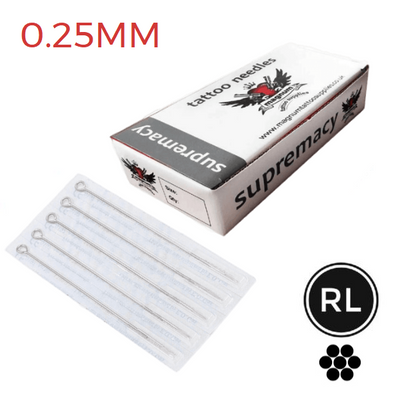As tattoos become more common, their presence in the workplace has sparked discussions about professionalism, personal expression, and company culture. So, we aim to help both employers and employees understand the evolving norms around tattoos at work.
We will cover the acceptability of tattoos, their impact on job opportunities, and practical tips for job seekers with tattoos, providing a comprehensive overview of this modern workplace issue.
Are tattoos in the workplace acceptable now?
Tattoos in the workplace have become more acceptable in recent years, especially as social norms and cultural perceptions evolve. Many industries, particularly those in creative fields like art, fashion, and technology, tend to be more open to visible tattoos.
However, acceptance can still vary significantly by industry, company culture, and geographic location. In more conservative fields such as finance, law, or healthcare, visible tattoos may still be frowned upon or subject to specific guidelines like their dress code policy.
Generally, companies are increasingly including tattoo acceptance as part of their diversity and inclusion policies, reflecting a broader shift towards a more inclusive approach to employee appearance.

Pros and cons of accepting tattoos in the workplace
Allowing tattoos in the workplace has its pros and cons, reflecting a balance between personal expression and professional image:
Pros:
- Promotes Individuality: Allowing workplace tattoos can help employees feel more comfortable and authentic at work, which can boost morale and job satisfaction.
- Enhances Diversity and Inclusion: Embracing tattoos can be part of broader diversity and inclusion efforts, signalling that a workplace values different backgrounds and lifestyles.
- Attracts Talent: Especially among younger, creative, or tech-savvy professionals, a tattoo-friendly policy can make a company more attractive to potential employees.
- Reflects Modern Social Norms: As societal acceptance of tattoos grows, companies that allow them can appear more modern and in touch with trends and remove negative stereotypes.
Cons:
- Perception Issues: In industries where professionalism is traditionally tied to a conservative appearance, tattooed employees may still be seen as unprofessional or less credible.
- Customer Relations: Depending on the clientele, visible tattoos may negatively affect customer perceptions or interactions, particularly in conservative sectors.
- Uneven Enforcement: Implementing a policy that balances tattoo acceptance with professional appearance can be challenging and may lead to inconsistencies in enforcement.
- Limits to Acceptability: There may still be a need to regulate the type, size, and placement of tattoos to ensure they are appropriate for the workplace, which can complicate policy guidelines.
Examples of potentially offensive tattoo designs
Tattoos that might be considered offensive in the workplace can vary widely depending on cultural, regional, and individual perspectives. However, there are certain types of tattoo designs that are commonly recognised as potentially inappropriate or offensive in many professional environments:
- Offensive Language or Symbols: Tattoos that contain profanity, slurs, or derogatory language, as well as symbols associated with hate groups or extremist ideologies.
- Violent Imagery: Designs that depict violence, such as weapons, blood, or graphic scenes, can be disturbing or triggering to others.
- Sexually Explicit Content: Tattoos that feature nudity or sexual acts are typically considered inappropriate for most workplaces.
- Political or Religious Imagery: While not inherently offensive, tattoos that strongly express political views or religious beliefs can sometimes be divisive in a diverse workplace setting.
- Cultural Appropriation: Designs that inappropriately use cultural or religious symbols that do not belong to the wearer's own culture can be seen as disrespectful or insensitive.

Do tattoos affect job opportunities?
Tattoos can affect job opportunities, but the impact largely depends on the industry, company culture, and the visibility and content of the tattoos. In creative or less formal sectors like tech, fashion, or marketing, tattoos are often more readily accepted and may not influence hiring decisions significantly.
However, in more conservative fields such as banking, law, or healthcare, visible tattoos might be viewed negatively and could potentially limit job prospects. Employers in these sectors might have stricter dress codes and appearance policies
Tips for job seekers with tattoos
For job seekers with tattoos, navigating the job market can require some additional considerations to ensure their body art doesn't negatively impact their professional opportunities. Here are some practical tips:
Research Company Culture
- Understand Policies: Before applying, research the company’s dress code and appearance policies regarding tattoos. This information might be available on their website, in job postings, or by asking during the interview.
- Industry Norms: Be aware of industry standards; creative fields may be more accepting than conservative ones like finance or law.
Consider Tattoo Visibility
- Cover Up: For interviews, especially in conservative industries, consider covering visible ink tattoos with clothing or makeup to avoid any potential bias.
- Strategic Placement: When getting new tattoos, consider placements that are easy to cover with standard business attire if you are targeting industries where tattoos are less accepted.
Address Tattoos Appropriately
- Be Prepared to Discuss: If your tattoos are visible during an interview, be prepared to discuss them positively if brought up, framing them as a part of your personal story or identity.
- Professionalism First: Always ensure that your professionalism in attire, grooming, and behaviour is impeccable, making your tattoos a non-issue given your qualifications and demeanour.
Leverage Your Tattoos
- Align with Brand Values: In industries that are open to self-expression, use your visible tattoo to connect with company culture or as an example of your creativity and individuality.
- Portfolio or Social Media: If relevant, include your tattoos in your portfolio or professional social media if they relate to your personal brand or professional skills.
Is it possible for an employer to ban tattoos in the workplace?

Yes, it is possible for an employer to ban tattoos in the workplace. Employers have the discretion to establish dress code policies and appearance policies that align with their company's brand, culture, and operational requirements. These policies can include restrictions on visible tattoos, especially if they believe that tattoos could impact the professional image of the company or are inappropriate for their specific work environment. However, these policies must be non-discriminatory and consistently applied to all employees to avoid legal issues.
Are tattoos and piercings allowed at work?
Whether tattoos and piercings are allowed at work depends on the company's specific policies. Many workplaces have become more accepting of tattoos and piercings as societal norms evolve. However, acceptance can vary widely based on the industry, company culture, and nature of the job.
For instance, creative fields and tech companies might be more permissive, while professions involving direct customer interaction, such as banking or healthcare, might have stricter guidelines. Ultimately, it's up to each employer to set their own policies regarding tattoos and piercings.
Final thoughts
Managing tattoos in the workplace involves balancing personal expression with professional standards. By understanding evolving norms and carefully considering policies, both employees and employers can navigate this aspect of modern work life thoughtfully and effectively.



























































 Studio supplies
Studio supplies












 Power & batteries
Power & batteries








 Aftercare
Aftercare





















 Apprentice
Apprentice


 Piercing & jewellery
Piercing & jewellery







 PMU supplies
PMU supplies




 New arrivals
New arrivals
 Gift vouchers
Gift vouchers
 Shop all
Shop all















































